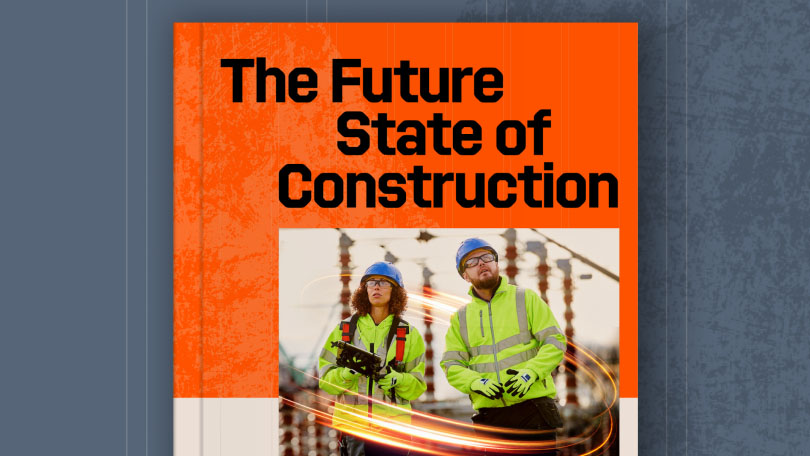— 7 min read
What are variation orders in construction?

Last Updated Mar 26, 2025

Sara Mata
Strategic Product Consultant
My background includes a degree in Technical Architecture, a Master´s degree in Building Construction Management and an extensive experience in project management and quantity surveying. I’ve progressed from hands-on roles as an estimator, quantity surveyor, and project manager to consultancy, now working as a Strategic Product Consultant. I specialize in advising clients on implementing digital solutions to enhance project and cost management processes. Focused on construction tech trends, I’m passionate about helping organizations leverage technology to drive success.
Last Updated Mar 26, 2025

A construction variation order — also known as a change order — is any change to the scope of work of a project that lays out the expectations and objectives of a build.
Variation orders set out additional work or amendments to the contracted scope. They can be raised by a client who wants to change or to add to a design, or by the contractors.
Contractors may raise variation orders if materials become unavailable and need to be substituted, or if unexpected circumstances lead to necessary changes to how the project is carried out.
A variation order encompasses anything that alters the project scope, which, in turn, might impact the budget or schedule. Essentially, any scope change constitutes a variation, regardless of its influence on costs or the timeline.

Sara Mata
Strategic Product Consultant
Procore Technologies
Table of contents
What does a variation order include?
A variation order has multiple parts that describe the changes, the process, and how the variation will affect the project. These parts include:
Description of the variation
The party instructing the variation must include a detailed description of what the variation includes. This should explain what the variation will add or remove from the scope, and why this is happening. For example, it could include the additional days needed on site due to changes in a design, and what the change in design requires.
Cost estimate
The variation order must include a breakdown of the costs of a variation. This includes the materials, labour, and any other related expenses.
Changes to schedule
Variation orders often cause a delay or change to the project schedule. In some cases, a variation could result in early completion, particularly if the variation is a removal of some of the work. The variation order must lay out a detailed explanation of how the project timeline will change.
Approval
The approval process requires agreement from all stakeholders on the project and may lead to negotiation over costs. Once consultation with all stakeholders has taken place, it is time to sign off on the variation order. Signatures on the variation order document are needed to provide documentation that there is a formal agreement in place.
Ultimately, clients must approve variation instructions. They are often focused on minimising additional costs and may require detailed explanations to understand the necessity of variations.

Sara Mata
Strategic Product Consultant
Procore Technologies
Learn about the future of the built environment - Read Procore's Future State of Construction report
Learn how contractors, subcontractors, and project teams can take advantage of new opportunities to boost efficiency and profitability over the next decade. Download the report to get your roadmap to the future state of construction.

Reasons for Variations
There are many reasons why a variation order could be needed for a successful construction project. Here are some common reasons for variations:
+ Changes or additions to the original design
+ Incorrect estimations
+ Value engineering resulting in reduced costs
+ Environmental challenges affecting timelines
+ Additional requests
+ Supply chain issues or unavailable materials
Type of Variations
There are different types of variations depending on how and why they are issued, and how they impact the project. Some of these types include:
Directed variations
A directed variation is a change to the project scope that is formally instructed by the client or the project owner. This is the ideal kind of variation order, as it follows the best practice process of clearly communicating and documenting a variation.
Constructive variations
A constructive variation is a more difficult kind of variation which occurs without a formal instruction. These can happen for many reasons, including the need for additional work that wasn’t properly scoped for, or because of miscommunication.
Constructive variations also occur if the construction team hits unforeseen challenges, such as finding rock when digging instead of soil. If the construction team carries out additional excavation without communicating this, then asks for extra compensation after the work, this would be a constructive variation. This kind of variation can cause friction, as it usually means that extra work or costs haven’t been formally agreed upon.
How are variation orders valued?
Valuing a variation is a process which involves carefully calculating estimates for the change, communicating these with the client, reaching an agreement — possibly through negotiation — and arriving at a formal agreement. If materials used in the variation are in the contract’s Bill of Quantities, costs should reflect the original amounts. The RICS offers guidance for valuing variation orders in its guidance note, Valuing Change.
What are variation clauses?
A variation clause is a section in a construction project contract that sets out how the client and contractor will agree on variations if they come during construction, based on the phase of the project. Generally, they specify that any variation orders must be instructed and agreed upon in writing.
This protects both the client and the contractors, as it ensures transparency around what will happen if a variation is needed. Verbal variation orders are a risk to both parties, as it will be difficult to prove that any additional costs or changes to timelines have been agreed. This can lead to disputes when it is time to finalise the project.
Common Challenges of Variation Orders
Agreeing on variation orders can be a challenging process, as they usually lead to extra costs for the client. They may be less difficult when the client has requested the variation, but changes that arise for other or unexpected reasons may be met with reluctance. Common challenges when dealing with variation orders include:
Difficulty negotiating costs
Extra costs can lead to disputes, especially if they occurred due to an omission in the original scope. This can happen if, for example, something was missed in the risk assessment or the surveys, or if there is ambiguity in the contract.
On one project, a team discovered asbestos that wasn’t found in the original surveys. This was a big problem, because it takes a long time to fix. First you need to procure the asbestos removal, and you may need to carry out additional surveys. Then you need to carry out the removal, and until this is finished, you can’t continue with any building work. The delays meant the timeline was affected and the asbestos removal required extra costs, which needed to be negotiated.

Sara Mata
Strategic Product Consultant
Procore Technologies
Project delays
As in the above example, variation orders can cause significant delays to a project’s timeline. These can be for many reasons, such as:
+ Procuring materials
+ Revising drawings
+ Project dependencies
Delays can result in penalties where the contractor owes a financial payment because the work hasn’t finished in line with the contracted timeline.
Approval delays
Construction teams must wait for approval and sign-off before they move forward with a variation. This can lead to potential delays while they wait for consultation with stakeholders to finalise. This may affect project timelines if it takes a while. Delays can also occur if the client asks for quotes from other contractors to provide a benchmark.
FAQs
How can I ensure a smooth variation order process?
Effective variation order management requires a mix of technical and ‘soft’ skills to minimise any friction. On the technical side, matching contractual requirements and providing accurate cost breakdowns helps to build trust with the client. In cases where there are disputes, excellent, regular communication, conflict resolution, and negotiation skills are crucial.
Effective negotiation, communication, and conflict resolution skills are vital. These skills, often honed through experience, help navigate the complexities of variation order management.

Sara Mata
Strategic Product Consultant
Procore Technologies
How do you request a variation order?
Variation orders should be formally requested, in writing, so that there is a documented record of any changes, costs, timeline impact, and approval. There are templates available to ensure that you provide all the necessary information. The Procore platform also has a handy tool that can automate a lot of the process, and ensure you add all the right details.
How do I ensure effective communication of variation orders?
It’s important to have regular meetings to discuss any variations to a construction project, and to communicate the outcomes of the meetings in a report. You should also have a tracker that documents progress. At the beginning, meetings may take place once a month or fortnightly. As you get closer to the end of the project, it’s good practice to hold these meetings on a weekly basis.
Categories:
Written by

Sara Mata
Strategic Product Consultant | Procore Technologies
My background includes a degree in Technical Architecture, a Master´s degree in Building Construction Management and an extensive experience in project management and quantity surveying. I’ve progressed from hands-on roles as an estimator, quantity surveyor, and project manager to consultancy, now working as a Strategic Product Consultant. I specialize in advising clients on implementing digital solutions to enhance project and cost management processes. Focused on construction tech trends, I’m passionate about helping organizations leverage technology to drive success.
View profileExplore more helpful resources

Integrated Compliance: A Main Contractor’s Guide to ISO 9001, 14001, 45001, and 44001
For UK main contractors, ISO 9001, 14001, and 45001 are fundamental prerequisites to any tendering activity. The Building Safety Act, Net Zero targets, and tight margins mean these certifications are...

The Main Contractor’s Action Plan for Commercial Risk
For UK main contractors, managing risk protects project margins, rather than solely acting as a compliance exercise. Construction is an industry defined by thin profits and high liability, and a...

Construction Action Plans: Minimising Risk & Maximising Delivery
A construction project is a complex set of tasks, resources, and stakeholders. Without a clear, documented path forward, even meticulous planning can lead to delays, cost overruns, and disputes. The...

Construction Drawings: Guide to Types & Regulations
While architects, urban planners and landscape designers first conceive buildings and public realms in their minds, translating vision into detailed drawings remains the foundation for any project. Construction drawings translate...
